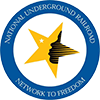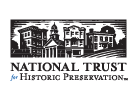Sailing to Freedom: Maritime Dimensions of the Underground Railroad Seeking freedom along the Underground Railroad was not only by overland routes. Enslaved African Americans often escaped the South by water along the eastern seaboard, aboard merchant and passenger ships, or smaller watercraft.
In the antebellum South, enslaved persons commonly worked in diverse maritime industries – labor that gave them invaluable experience with vessels and seafaring, a knowledge of coastal geography, contact with ships’ crews from northern states, and access to vessels heading out to sea. This specialized strategic knowledge conveyed power and created opportunity. Almost all documented successful escapes from the deep coastal South were by sea.
Ocean travel provided an enticing, practical method of escape. Seaborn escapes were faster, safer, and more efficient – typically a non-stop voyage directly to a port in a free state. By contrast, fleeing long distances overland was slow, dangerous, logistically complicated, and nearly impossible.
Sailing to Freedom returns the sea to its rightful, central place in the Underground Railroad story, and restores agency to the freedom seekers who used their maritime knowledge to achieve liberty and security in northern communities like New Bedford.
Sailing to Freedom Keynote Speaker Fergus M. Bordewich; historian and author of Bound for Caanan
Title: “Radical Remembering: Exploding Myths and Recovering the Realities of Abolition and the Underground Railroad”
Sailing to Freedom Panel One: “Creating Freedom in Northern Port Towns”
Panelists: • Elysa Engleman; Mystic Seaport Museum • Len Travers; University of Massachusetts, Dartmouth • Skip Finley; Independent historian and author
Sailing to Freedom Panel Two: “Escaping Enslavement by Sea from the Coastal South”
Panelists: • Michael Thompson; University of Tennessee, Chattanooga • Cassandra Newby-Alexander; Norfolk State University; Virginia • Megan Jeffreys; Cornell University • Michael Schoeppner; University of Maine, Farmington
Sailing to Freedom Panel Three: “Black UGRR Operatives in Port Communities”
Panelists: • Cheryl Janifer LaRoche; University of Maryland • Mirelle Luecke; Gerald R. Ford Presidential Library & Museum • Melissane Parm Schrems; St. Lawrence University
Sailing to Freedom: Roundtable Discussion
Panelists • Shawn Quigley; National Park Service, Boston • Akeia de Barros Gomes; Mystic Seaport Museum • Janine da Silva; National Park Service, New Bedford • Lee Blake; New Bedford Historical Society
Thank you to the contributing authors to the Sailing to Freedom volume, our keynote speaker, Fergus M. Bordewich, and other historians for a conference that examines the historical record and recent research about the maritime Underground Railroad.
The assembled scholars and historians shared their various views and expertise about the experiences of freedom seekers and those who assisted their escape from enslavement through the maritime Underground Railroad. The conference was presented in partnership with the New Bedford Historical Society, the New Bedford Whaling National Historical Park, the New Bedford Whaling Museum, and the University of Massachusetts-Dartmouth.
Presentations and lectures were held on September 23, with September 24 reserved for visiting Underground Railroad sites in New Bedford. The conference was free and open to the public.
Major funding for the exhibition “Sailing to Freedom: Maritime Dimensions of the Underground Railroad” has come from the National Endowment for the Humanities through a National Writing Project “More Perfect Union” grant and the New Bedford Historical Society.
Thanks to the following contributors for financial support of the exhibition: New Bedford Historical Society • Office of the Provost, University of Massachusetts Dartmouth • New Bedford Whaling National Historical Park • BayCoast Bank Foundation • Southcoast Health Foundation • Law Firm of Lang, Xifaras, and Bullard.
Thanks to the following institutions and individuals for the use of images from their collections: New Bedford Free Public Library • The African American Museum of Philadelphia • The American Antiquarian Society • The Maryland Center for History and Culture • Lee Blake • Carl J. Cruz.
Thanks to the following individuals for research in support of the exhibition: Daphne Jonsson • Megan Jeffreys • Shawn Quigley • Kate Blackmer • Jonathan Schroeder • Lee Blake • Carl J. Cruz • Lynda Ames.
Co-Curators:
Michael Dyer (Curator of Maritime History; New Bedford Whaling Museum) Timothy Walker (Professor of History; University of Massachusetts Dartmouth)
Digitally Curated By: Mansa Consulting, Inc.



